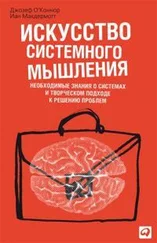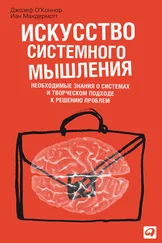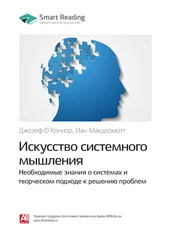DellaVigna S., and Joshua M. Pollet, 2008. Investor Inattention and Friday Earnings Announcements, Journal of Finance, forthcoming.
Deloitte, 2007, Yes, Virginia, There Is a Santa Claus, Press release, Nov. 1.
DelVecchio D., H. Shanker Krishnan, and Daniel C. Smith, 2007, Cents or Percent: The Effects of Promotion Framing on Price Expectations and Choice, Journal of Marketing 71 (3).
DePaulo B. M., et al., 1996, Lying in Everyday Life, Journal of Personality and Social Psychology 70, pp. 979–995.
Diaz J., 1989, Perils of Putting, Sports Illustrated, April 3, pp. 76–79.
Diener E., and Carol Diener, 1996, Most People Are Happy, Psychological Science 7 (3), pp. 181–185.
Dingus T. A., et al., 2006, The 100-Car Naturalistic Driving Study, Phase II – Results of the 100-Car Field Experiment, National Highway Traffic Safety Administration, Report No. DOT HS 810 593, Washington, D.C.
DiVita J., et al., 2004, Verification of the Change Blindness Phenomenon While Managing Critical Events on a Combat Information Display, Human Factors 46 (20), pp. 205–218.
Doege D., 2007, Man Mistakes Porn DVD as Woman’s Cries for Help; He Faces Charges After Entering Apartment with Sword in Tow, Milwaukee Journal Sentinel, Feb. 20.
Doege D., and Amy Rinard, 2007, Swordsman’s Claim Disputed; Prosecutor Says Sounds on Neighbor’s DVD Were Consensual Sex, Not Rape, Milwaukee Journal Sentinel, Feb. 21.
Donley R., and M. Ashcraft, 1992, The Methodology of Testing Naïve Belief in the Physics Classroom, Memory & Cognition 20 (4), pp. 381–91.
Dooren J. C., 2008, FDA Warns 2 Disodium Drugs Can Be Mistaken for Each Other, Wall Street Journal, Jan. 17, p. D4.
Douglas K., et al., 2005, Attention Seeking, New Scientist, May 28, p. 38.
Dremen D. N., and Michael A. Berry, 1995, Analyst Forecasting Errors and Their Implications for Security Analysts, Financial Analysts Journal, May/June, pp. 30–41.
Dudokovich N., Elizabeth Marsh, and Barbara Tversky, 2004, Telling a Story or Telling It Straight: The Effects of Entertaining Versus Accurate Retellings on Memory, Applied Cognitive Psychology 18, pp. 125–143.
Dugas C., 2007, Too Many 401(k)s Still Have Too Much Company Stock, USA Today, Dec. 14, 2007.
Duncker K., 1939, The Influence of Past Experience upon Perceptual Properties, American Journal of Psychology 52, pp. 255–265.
Dunleavey M. P., 2007, Disclosing Bias Doesn’t Cancel Its Effects, New York Times, July 28, p. B6.
Dux P. E., Jason Ivanoff, Christopher L. Asplund, and Rene Marois, 2006, Isolation of a Central Bottleneck of Information Processing with Time-Resolved fMRI, Neuron 52, pp. 1109–1120.
Dweck C., S., 1999, Self-Theories: Their Role in Motivation, Personality, and Development, Philadelphia: Psychology Press.
Ebbinghaus H., 1964, Memory: A Contribution to Experimental Psychology, New York: Dover. (Originally published 1885; translated 1913.)
Einstein Gilles, et al., 2003, Forgetting of Intentions in Demanding Situations Is Rapid, Journal of Experimental Psychology: Applied 9, pp. 147–62.
Einstein N., 2007, author interview.
Epley N., and Erin Whitchurch, 2008, Mirror, Mirror on the Wall: Enhancement in Self-Recognition, Personality and Social Psychology Bulletin 34 (9), pp. 1159–1170.
Ericsson K. A., 1996, The Road to Excellence: The Acquisition of Expert Performance in the Arts and Sciences, Sports and Games, Mahwah, N.J.: Lawrence Erlbaum Associates.
Ericsson K. A., 2007, author interview.
Ericsson K. A., Roy W. Roring, and Nandagopal Kiruthiga, 2007, Giftedness and Evidence for Reproducibly Superior Performance: An Account Based on the Expert Performance Framework, High Ability Studies 18 (1), pp. 3–56.
Ericsson K. A., and Jacqui Smith, eds. 1991, Toward a General Theory of Expertise: Prospects and Limits, Cambridge, U.K.: Cambridge University Press.
Esch H. E., and J. E. Burns, 1996, Distance Estimation by Foraging Honeybees. Journal of Experimental Biology 199 (1), pp. 155–162.
Etienne A. S., et al., 1999, Dead Reckoning (Path Integration), Landmarks, and Representation of Space in a Comparative Perspective. In Wayfinding Behavior: Cognitive Mapping and Other Spatial Processes, edited by Reginald G. Golledge. Baltimore: Johns Hopkins University Press.
Fackelmann K., 2006. Study: Long Hospital Shifts, Sleep Deprivation Can Kill, USA Today, Dec. 12, p. 1.
Feldman R. S., J. A. Forrest, and B. R. Happ, 2002, Self-Presentation and Verbal Deception: Do Self-Presenters Lie More? Basic and Applied Social Psychology 24, pp. 163–170.
Ferraro R., et al., 2005, Let Us Eat and Drink, for Tomorrow We Shall Die: Effects of Mortality Salience and Self-Esteem on Self-Regulation in Consumer Choice, Journal of Consumer Research 32, pp. 65–75.
Fielding R., 2003, Password Problems Swamp Help Desks, Vnunet.com, Jan. 15.
Fischhoff B., 1975. Hindsight ≠ Foresight: The Effect of Outcome Knowledge on Judgment Under Uncertainty, Journal of Experimental Psychology: Human Perception and Performance 1 (3), pp. 288–299.
Fischhoff B., 2007, An Early History of Hindsight Research, Social Cognition 25 (1), pp. 10–13.
Fischhoff B., and Ruth Beyth, 1975, «I Knew It Would Happen» – Remembered Probabilities of Once-Future Things, Organizational Behavior and Human Performance 13, pp. 1–16.
Fisher I., 1998, In Excitement over Cancer Drugs, a Caution over Premature Hopes, New York Times, May 5.
Fontes M., and Peter Roach, 2007, Condom Nations, Foreign Policy, Sept./Oct.
Frank M. G., and Thomas Gilovich, 1988, The Dark Side of Self and Social Perception: Black Uniforms and Aggression in Professional Sports, Journal of Personality and Social Psychology 54 (1), pp. 74–85.
Frank T., 2007, Most Fake Bombs Missed by Screeners, USA Today, Oct. 26.
Fryar C. D., et al., 2007, Drug Use and Sexual Behaviors Reported by Adults: United States, 1999–2002, Centers for Disease Control and Prevention, Advance Data No. 384, June 27.
Gaba D. M., et al., 2003, Differences in Safety Climate Between Hospital Personnel and Naval Aviators, Human Factors 45 (20), pp. 173–185.
Gabriel M. T., J. W. Critelli, and Juliana S., 1994, Narcissistic Illusions in Self-Evaluations of Intelligence and Attractiveness, Journal of Personality 62 (1), pp. 143–155.
Galinsky A. D., and Thomas Mussweiler, 2001, First Offers as Anchors: The Role of Perspective-Taking and Negotiator Focus, Journal of Personality and Social Psychology 81 (4), pp. 657–669.
Gawande A., 2007, The Power of Negative Thinking, New York Times, May 1.
Gervais S., and Terrance Odean, 2001, Learning to Be Overconfident, Review of Financial Studies 14 (1), pp. 1–27.
Gibbons R. V., et al., 1998, A Comparison of Physicians’ and Patients’ Attitudes Toward Pharmaceutical Industry Gifts, Journal of General Internal Medicine 13, pp. 151–154.
Gibbs W. W., 2005, Considerate Computing, Scientific American, May 28, pp. 54–61.
Gibson, J. J., 1950, The Perception of the Visual World, Boston: Houghton Mifflin.
Gibson, J. J., 1979, The Ecological Approach to Visual Perception, Boston: Houghton Mifflin.
Gilbert D., 2005, Stumbling on Happiness, New York: Knopf.
Gilbert D., 2006, I’m O.K., You’re Biased, New York Times, April 16, p. WK12.
Gilbert D., and Jane E. Ebert, 2002, Decisions and Revisions: The Affective Forecasting of Changeable Outcomes, Journal of Personality and Social Psychology 82 (4), pp. 503–514.
Gilbert D., et al., 1998, Immune Neglect: A Source of Durability Bias in Affective Forecasting, Journal of Personality and Social Psychology 75 (3), pp. 617–638.
Gilovich T., 1981, Seeing the Past in the Present: The Effect of Associations to Familiar Events on Judgments and Decisions, Journal of Personality and Social Psychology 40 (5), pp. 797–808.
Читать дальше
Конец ознакомительного отрывка
Купить книгу




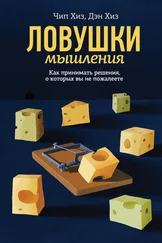
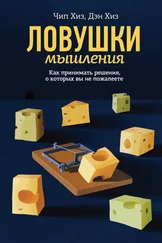

![Джозеф Халлинан - Почему мы ошибаемся? [Ловушки мышления в действии] [litres]](/books/396902/dzhozef-hallinan-pochemu-my-oshibaemsya-lovushki-myshl-thumb.webp)
